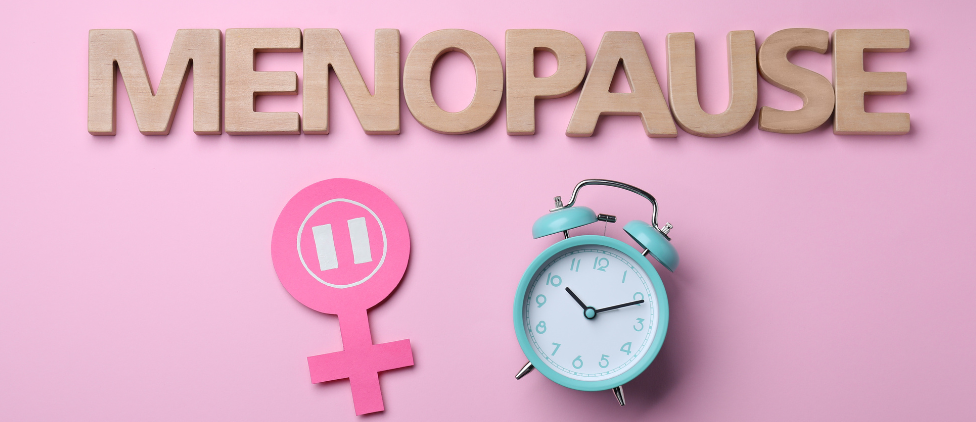
Menopause: It's not just about hot flushes

The menopause can affect women in different ways. There are lots of possible symptoms and women can experience all of them, or none at all.
Menopause is defined as the cessation of menstrual periods in women for at least 12 months. A quarter of women going through the menopause and or perimenopause described severe symptoms which can last for up to 7 years on average, with one in three women experiencing them for longer.
During the menopause and when oestrogen drops women can experience hot flushes, but other associated symptoms may include anxiety and low mood, mood swings and low self-esteem, lack of focus, memory loss, poor concentration (brain fog) and decreased libido and insomnia. Sometimes women also experience palpitations, headaches, muscle and joint pains and weight gain, as well as skin changes, recurrent urine infections and sensitive teeth and gums. Progesterone and testosterone also declines at the time of menopause, and this can also exacerbate the symptoms.
The perimenopause starts when the ovaries start to produce less oestrogen and is the transition stage to the menopause. It can start for women between their early 30’s to 50’s, and lasts for 4 to 8 years on average. Symptoms can be similar to the menopause and can be variable in severity and frequency and fluctuate. Changes in skin, hair, weight, mood and libido are most common. Changes to the normal pattern of periods are usually the first sign of the perimenopause. For those on contraceptive medications, it may be more difficult to identify changes to menstruation.
Although some women feel worried or too embarrassed to talk about these problems, greater public awareness has helped to show that the menopause is a real health issue, and cultural awareness is getting better now regarding this. Women should be encouraged to feel more comfortable about discussing their symptoms and what impact the menopause has on their lives at home, at work, personally and socially. Menopause is a natural part of reproductive aging, but sometimes women can feel burdened by it, and it can impact on their work – life balance if issues remain unresolved.
Although the menopause and associated symptoms can be difficult and feel overwhelming at times, there are treatments which can help. The most common treatments include, ‘Hormone Replacement Therapy’ (HRT), as well as low dose antidepressants. HRT usually comes in the form of patches, oral tablets and skin gels. The correct combination of oestrogen and progesterone in these medications can help relieve symptoms. Sometimes the prescription will need to be altered and adjusted, as one size does not fit all, and it can sometimes take time to get the right combination of treatment and for it to reach a therapeutic level.
A healthy diet and exercise may help relieve symptoms, and diets high in protein and calcium or sometimes supplements can assist. Gentle exercise such as yoga and swimming can be beneficial, and for those with a busy lifestyle self-care is encouraged, with plenty of rest and sleep. Talking therapy and alternative therapies may also help.
The ‘Male Menopause’ or Andropause, or testosterone deficiency syndrome can also impact on men in midlife. The male menopause is usually due to a sudden drop in testosterone in middle age. However, in most men the drop is steady and unlikely to cause any problems. A simple blood test can identify if there is a testosterone deficiency, and if this is diagnosed hormone replacement treatment may be prescribed by a specialist. Symptoms can include a decline in well-being, joint and muscular aches, decreased sexual ability, loss of libido, feeling burnt out, anxiety, low mood, sweating, fatigue, sleep problems, lacking in vitality and decrease in muscular strength. Life style factors can also contribute to symptoms, as well as stress.
Usually moderate physical exercise, lifestyle and diet changes can help and an active and healthy social life can help. Talking therapies and support for any mental health disorders may be required.
Getting medical advice can help reduce the impact of the menopause, perimenopause and the male menopause, and your GP or specialist will be able to advise as to the correct treatment and medications if required. A healthy life style and diet is also important.
The below links may also be helpful for advice. Occupational Health may also be able to provide support and guidance for anyone who is struggling or needing advice at work.
Useful links:
www.nhs.uk/conditons/menopause
www.menopauseand me.co.uk
www.nhs.uk/conditons/male-menopause
www.hcahealthcare.co.uk/our-services/conditons/male-menopause

.png)
.png)
